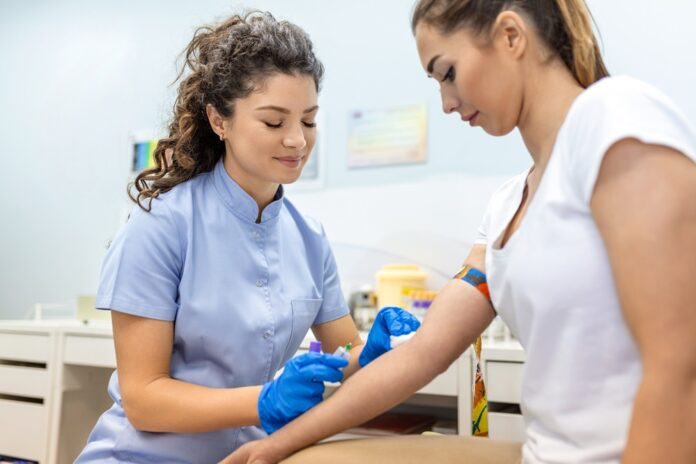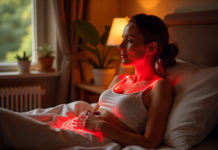
We don’t often think of them, but our veins are a vital part of our bodies. They carry blood from our organs back to our heart, ensuring that oxygen and nutrients are distributed throughout the body. However, problems with our veins can arise, causing discomfort and potentially leading to more serious health issues.
Whether you’re experiencing discomfort or are simply curious about the health of your veins, it’s important to know the signs of potential issues. In this article, we’ll cover the most common indicators of vein problems and provide helpful information on how to identify them. By understanding these key factors, you’ll be better equipped to assess your own vein health and seek appropriate treatment if necessary. Now let’s dive in and learn more!
Common Signs and Symptoms of Vein Problems
Vein problems can manifest in a variety of ways, depending on the specific condition. However, there are several signs and symptoms that are common among most vein issues. These include:
Pain or Discomfort
This is often one of the first indicators of an underlying vein problem. Pain or discomfort may be felt as a dull ache, throbbing, or burning sensation in the affected area. It may also be accompanied by swelling and tenderness. If you experience persistent pain or discomfort in your legs, arms, or other parts of your body, be sure to consult with a medical professional.
Visible Veins
In some cases, vein problems may be visible on the surface of the skin. This can include enlarged and bulging veins, known as varicose veins, or smaller twisted veins, known as spider veins. These visible signs may be a result of weakened or damaged valves in the veins, which can lead to poor blood flow and pooling.
Changes in Skin Color or Texture
Vein problems can also cause changes in the appearance and texture of the skin. This may include areas of redness, discoloration, or dry and itchy patches. Discoloration may be a sign of blood pooling in the affected area, while dry and itchy skin can indicate poor circulation.
Swelling
Swelling, also known as edema, is another common symptom of vein problems. This occurs when excess fluid builds up in the body’s tissues due to poor circulation. It may occur in the legs, feet, or ankles and can cause discomfort and difficulty with movement.
Heavy or Tired Legs
If you often feel like your legs are heavy, achy, or fatigued, it could be a result of poor circulation due to vein issues. This can make it difficult to stand or walk for long periods and may also cause numbness or tingling sensations.
Restless Legs
Restless leg syndrome, a condition characterized by an uncontrollable urge to move one’s legs, is also common among those with vein problems. It can be disruptive to sleep and may lead to fatigue during the day.
Numbness or Tingling
In some cases, vein problems can cause numbness or tingling sensations in the affected area. This is often a result of poor circulation and can be accompanied by a pins and needles feeling or sharp, shooting pains.
When to Seek Medical Attention
While experiencing one or more of these symptoms doesn’t necessarily mean you have a vein problem, you need to pay attention and seek medical attention if necessary. Here are some signs that you should seek professional help:
Symptoms are Persistent
If your discomfort or other symptoms last for an extended period of time, it’s best to consult with a doctor. Ignoring persistent symptoms can lead to further complications and potentially worsen the underlying issue.
Symptoms are Worsening
If your symptoms are getting worse over time, be sure to get them checked out before they potentially develop into a more serious issue. Early detection and treatment can help prevent further damage and improve your overall vein health.
Family History of Vein Problems
If you have a family history of vein problems, try to be proactive and monitor your own vein health. You may be more susceptible to developing vein issues and should seek medical attention if you notice any potential symptoms.
Discomfort Affects Daily Activities
If your discomfort is interfering with your daily activities or quality of life, it’s time to seek medical attention. Don’t let vein problems hold you back from living your life to the fullest.
What Not to Do
While it’s important to be aware of the signs and symptoms of vein problems, it’s also a good idea to know what not to do. Here are a few things to avoid:
Ignoring Symptoms
It’s easy to brush off minor discomfort or changes in your veins, but doing so could potentially lead to more serious health issues down the line. If you notice any potential symptoms, it’s best to consult with a medical professional.
Self-Diagnosis and Treatment
It’s always best to seek the advice of a trained medical professional for diagnosis and treatment. Avoid self-diagnosing or attempting home remedies without consulting with a doctor first.
Delaying Treatment
If you suspect you may have a vein problem, don’t wait to seek medical attention at a certified vein disease clinic. Early detection and treatment can prevent more serious complications in the future.
Vein problems can vary in severity and may require different forms of treatment. By being aware of the common signs and symptoms, you’ll be better equipped to identify potential issues and seek appropriate medical care. Remember, early detection and treatment can help prevent more serious health problems down the line. If you’re experiencing any of these signs or symptoms, don’t hesitate to consult with a doctor for proper diagnosis and treatment options. Your vein health is an important aspect of your overall well-being, so take care of it!













